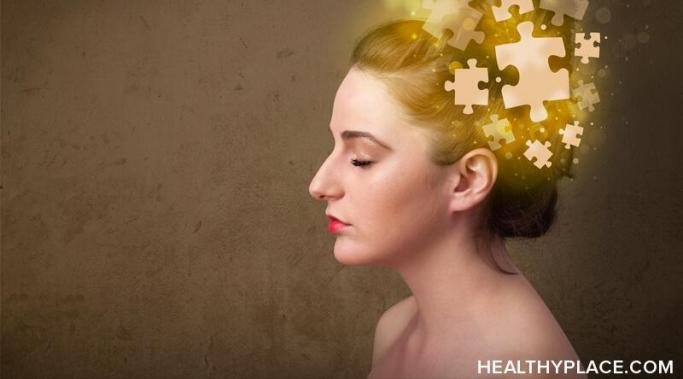Blogs
Coping with psychotic symptoms is very difficult. It can be terrifying and hard to cope when you lose touch with reality. My auditory and visual hallucinations have been the scariest part of my struggle with schizoaffective disorder. My hallucinations come in the form of ghosts and spirits and have caused me a great deal of anxiety over the years. Here's how I've learned to cope with psychotic symptoms.
Any kind of mindfulness trick can seem too difficult or pointless when you're really depressed. During one of my worst periods of depression, I had a coach from a personal development program. He suggested I list all the places and activities that made me happy, then go do them. I became even more distraught when I realized I had exactly zero items to put on my list. But check out this mindfulness trick, it's different.
Stigma can cause shame and guilt in people with mental illness. Have you ever felt guilty for having a mental illness? I definitely have. When I reveal to someone that I have depression, my heart starts to beat fast and my hands get clammy. What are they going to think? Are they going to scoff at what they consider a weakness? Are they going to cut ties with me altogether? This is one of the scariest situations someone with mental illness has to face and it's because shame and guilt can be caused by stigma.
Giving affection to your abusive partner can trigger verbal abuse. Verbal abusers may lash out because they can't give affection. Don't get me wrong, they can provide acts of love when it suits them, but they aren't able to give and receive affection mutually. Often, verbal abuse and problems with physical contact go hand in hand: abusers may withhold affection or contact from partners as punishment, or criticize them for being too affectionate or needy. But it all boils down to the same underlying problem. If there's one thing my past relationship taught me, it's that verbally abusive personality types can't give affection in a healthy, mutually beneficial way, and this is why.
The main symptom of disruptive mood dysregulation disorder (DMDD) is chronic irritability. "Irritability" is a vague word, though. It doesn't adequately describe how angry and mean our kids with DMDD can get or how demoralizing it feels. As parents, we work hard to raise decent human beings, then a DMDD outburst erupts and that decency seemingly flies out the door.
Attention-deficit/hyperactivity disorder (ADHD) affects working memory as well as short- and long-term memory. In fact, poor memory is often listed as a symptom of ADHD, and numerous articles give great advice about dealing with ADHD forgetfulness and how to improve one’s memory. However, I and many others with ADHD can accurately remember certain facts or conversations years later. I’d like to discuss how ADHD’s relationship to working memory impacts our daily lives, why we struggle with memory, and what we can do about it.
February is Teen Dating Violence Awareness Month (TDVAM), spotlighting the fact that every year "approximately 1.5 million high school students nationwide experience physical abuse from a dating partner," according to the Domestic Violence Awareness Project. Awareness of violence in teen and 20-something dating is an important key to turning these statistics around, especially in teens with mental illness, yet three out of four parents never talk to their children about domestic violence. As parents of mentally ill children, it is vital that we address this issue and speak to our teens about dating violence and what to do.
Yoga and mental illness recovery can go hand in hand -- it is an incredible and powerful tool for recovery. The resources to overcome and aid mental illness are abundant. What works for one person is not necessarily going to work for another. Keeping an open mind and trying different things is extremely important while on this journey. I believe that a combination of a variety of different mental health tools is one of the best approaches. Yoga is one of the tools I use on a regular basis, and yoga can help you with depression, anxiety and stress, too. Yoga can help mental illness.
When my siblings stress me out, it can trigger my anxiety. And if you have siblings, you might have experienced anxiety from living with them too. Growing up with my five siblings was not easy. At times, dealing with my siblings was (and still is) a nightmare. But I have learned that growing up with siblings can shape who you are in a positive way and teach you a lot about relationships. In this article, I talk about things I remember when my siblings stress me out.










I believe she will only be able to rid herself of her demons, and hopefully her BPD as well, when she's ready to confront the abuse of her father. If she can put the blame where it belongs, she may stop projecting that victim/perpetrator cycle on the present men in her life. These demons are a metaphor for the purgatory she has created for herself. That reality has consequences in the real world, but it need not be real in the tangible sense. Exorcising her demons will require the expenditure of real physical energy and probably the destruction of aspects of her personality. If this ever happens, and it's possible but not probable, then these demons will evaporate. They are only as real as one's personality is real. In short, reality is not the question, it's what you make of the things you feel to be real.